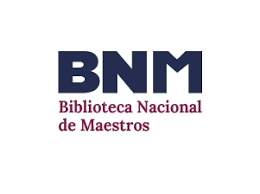ELEMENTOS DE RAZONAMIENTO INFORMAL EVIDENCIADOS EN TAREAS DE INFERENCIA ESTADÍSTICA
Resumen
Se describen las características de un instrumento diseñado para esta investigación que permite analizar elementos de razonamiento inferencial informal que intervienen a la hora de elaborar hipótesis basadas en información muestral representada a través de distintos resúmenes estadísticos. También presentamos el análisis previo del contenido del mismo, identificando los elementos de razonamiento que surgen al resolver cada ítem. A continuación, analizamos cualitativamente, los elementos de razonamiento utilizados por dos estudiantes de las carreras: Contador Público e Ingeniería en Informática de la Universidad Católica de Santiago del Estero, Departamento Académico Rafaela. A partir de este análisis detectamos relaciones entre elementos de razonamiento que ponen en juego estos alumnos y dificultades a la hora de interpretar la información estadística que sirve de fundamento en la elaboración de hipótesis.
Descargas
Referencias
Ausubel, D., Novak, J. y Hanesian, H. (1983). Psicología Educativa: Un punto de vista cognoscitivo. 2° Ed. Trillas. México.
Batanero, C., Vera, O. y Díaz, C. (2012). Dificultades de estudiantes de Psicología en la comprensión del contraste de hipótesis. Números, 80, 91-101.
Carmines, E. G. y Zeller, R. A. (1979). Reliability and validity assesment. Sage University Paper.
Cobb, P. y Gravemeijer, K. (2008). Experimenting to support and understand learning processes. In A.E. Kelly, R.A. Lesh, y J. Y. Baek (Eds.), Handbook of design research methods in education. Innovations in science, technology, engineering and mathematics learning and teaching (pp. 68-95). Mahwah, NJ: Lawrence Erlbaum Associates.
Falk, R., y Greenbaum, C. W. (1995). Significance tests die hard: The amazing persistence of a probabilistic misconception. Theory and Psychology, 5, 75-98.
Gal, I. (2004). Statistical Literacy: meanings, components, responsibilities. En D. Ben-Zvi y J. Garfield (eds.), The challenge of developing statistical literacy, reasoning and thinking, pp. 47 – 78.
Gil, E. y Ben-Zvi, D. (2014) Long-Term impact on students’ Informal Inferential Reasoning. In K. Makar, B. de Sousa, R. Gould (Eds.), Sustainability in statistics education. Proceedings of the Ninth International Conference on Teaching Statistics. Voorburg, The Netherlands: International Statistical Institute.
Godino, J. D.; Batanero, C. y Font, V. (2007). The onto-semiotic approach to research in mathematics education. ZDM.The International Journal on Mathematics Education, 39 (1-2), 127-135.
Moore, D.S. (2004). The basic practice of statistics. New York: W. H. Freeman.
Pfannkuch, M. (2007). Year 11 students’ informal inferential reasoning: a case study about the interpretation of box plots.Mathematics Education, 2 (3), pp. 149 -167.
Sotos, A. E. C., Vanhoof, S., Van den Noortgate, W., y Onghena, P. (2007). Students’ misconceptions of statistical inference: A review of the empirical evidence from research on statistics education. Educational Research Review, 2, 98-113.
Tauber, L.; Redondo, Y. y Cravero, M. (2016) Tratamiento de la Inferencia Estadística Informal a través de un proyecto que integra ideas estocásticas fundamentales. En: Actas XX Jornadas Nacionales de Educación Matemática, Vol. 20, N° 1.Valparaíso.
Zieffler, A.; Garfield, J.; Delmas, R. y Reading, C. (2008). A framework to support research on informal inferential reasoning.StatisticsEducationResearchJournal,7 (2), pp. 40-58.
Descargas
Publicado
Número
Sección
Licencia
Política propuesta para revistas que ofrecen acceso abierto
Aquellos autores/as que tengan publicaciones con esta revista, aceptan los términos siguientes:- Los autores/as conservarán sus derechos de autor y garantizarán a la revista el derecho de primera publicación de su obra, el cuál estará simultáneamente sujeto a la Licencia de reconocimiento de Creative Commons CC BY-NC-SA 2.5 AR que permite a terceros compartir la obra siempre que se indique su autor y su primera publicación esta revista.
- Los autores/as podrán adoptar otros acuerdos de licencia no exclusiva de distribución de la versión de la obra publicada (p. ej.: depositarla en un archivo telemático institucional o publicarla en un volumen monográfico) siempre que se indique la publicación inicial en esta revista.
- Se permite y recomienda a los autores/as difundir su obra a través de Internet (p. ej.: en archivos telemáticos institucionales o en su página web) antes y durante el proceso de envío, lo cual puede producir intercambios interesantes y aumentar las citas de la obra publicada. (Véase El efecto del acceso abierto).












